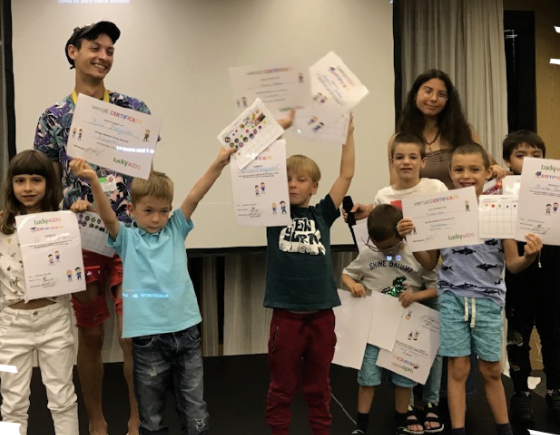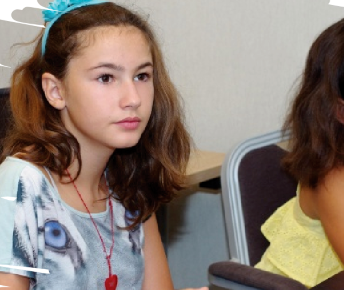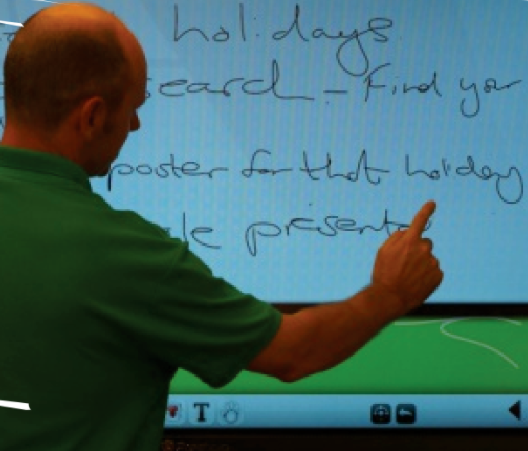
In LuckyKids summer children’s language camp we conduct 2 types of tests in English:
- Test to determine the child’s entry level upon admission to the camp;
- Exit test to determine the degree of absorption of the material during the stay in the camp.
IMPORTANT! The tests at LuckyKids International Children’s Language Camp are not aimed at assessing children, but at supporting the process of adaptation (entry test) and measuring the degree of mastery of new material (exit test).
Entry test to determine the initial level
The English entry test is common to all children entering the camp. Exceptions are the youngest, who use a different age-appropriate approach.

Aim of the test: allocation of each child in the most appropriate level of English language training.
Venue: Lucky Bansko Aparthotel SPA & Relax.
Time of holding: c the afternoon of day 1.
The entrance test consists of 2 parts:
- Written part – school-age children fill out a test with closed-ended questions, and the youngest who cannot read and write – a picture test;
- Oral part – the teachers talk to the children to check their speaking level of language proficiency, whether they feel comfortable with its use, whether they are afraid to make mistakes, etc.
The test for determining the entry level in English is an integral part of the process of adapting the child to the new environment.
Sample test to determine the initial level (.pdf)
Exit test
The content of the exit test, which measures the degree of absorption of the material during the stay in the camp, is determined by the topic of the specific camp shift.
Aim of the test: to help the teacher assess the degree of mastering the material (in%), trace the dynamics in each group and indicate specific qualities for each child in the final report to the parent.
Location: aparthotel Lucky Bansko SPA & Relax.
Time of the event: in the morning on day 7 or day 14 depending on the length of stay.
Content of the test: grammar, words and expressions that the children learned during their stay in the camp, in the form of:
- In closed-ended questions – for school-age children;
- Picture test – for the little ones.
The number of reported correct answers from the input test cannot be compared with that from the input due to differences in the criteria and purpose of the two tests.
Sample exit test for beginners (.pdf)
Sample exit test for advanced (.pdf)
Feedback and recommendations for the child after the end of the stay in the camp
At the end of each shift, parents receive an e-mail report that summarizes the teacher’s impressions of the child, as well as recommendations for his or her future development.
The final report contains:
- Feedback from the teacher how the child coped with the learning material (topics, grammar, vocabulary), what strengths and weaknesses he/she showed, etc.
- Recommendations and guidelines for improving his/her future performance.
The recommendations can be especially useful for teachers who work with children during the rest of the year, as they are derived from observations in a non-school environment. In the camp atmosphere, children often show qualities and traits that are difficult to stand out in the classroom.
IMPORTANT! The report of LuckyKids International Summer Language Camp is analytical, not evaluative.
How to prepare your children for the test?

Children get stressed when they hear the word “test” because they expect to be tested and graded.
Our advice to parents is to prepare their children in advance for both tests, emphasizing the fact that their goal is to help teachers get to know them and improve their own work, not to evaluate them.
Preliminary preparation is especially important when the child:
- is shy
- has difficulties with adapting to a new environment
- is visiting a camp for the first time
- has a beginner’s level in English
- has a strong attachment to the family environment
- finds it difficult to communicate with peers or is of introverted (closed) type.
The camp team is available for further questions and / or clarifications on the topic.